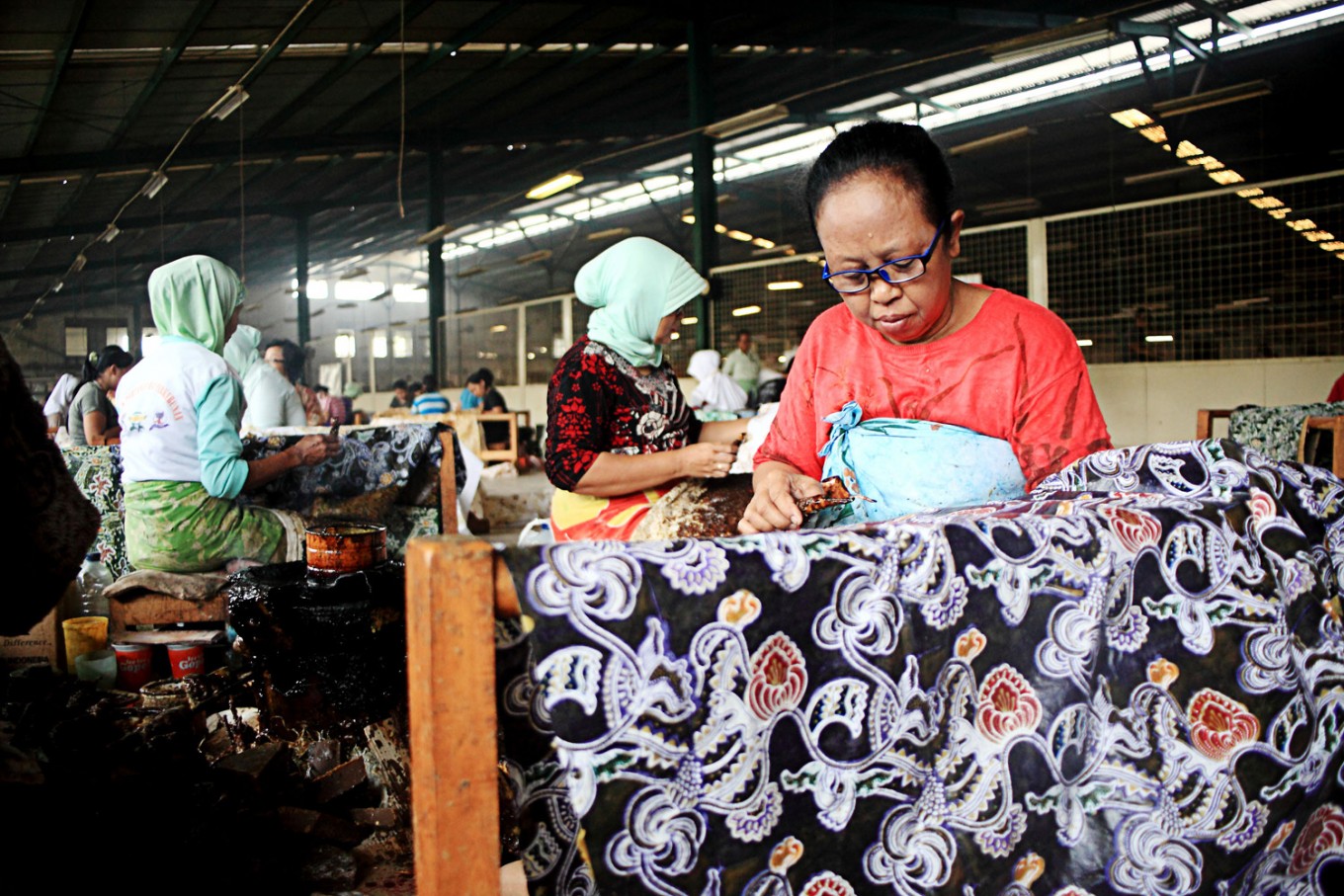Popular Reads
Top Results
Can't find what you're looking for?
View all search resultsPopular Reads
Top Results
Can't find what you're looking for?
View all search resultsIndonesia explores options to ease industrial loans
Change text size
Gift Premium Articles
to Anyone
W
ith relatively stagnant growth in the manufacturing sector, the government is considering assigning a special institution to provide long-term financing for industrialists, who used to provide a major boost for economic growth.
Once an outstanding feature in the domestic economy, the manufacturing sector seems to have hit a rough spot, with the Central Statistics Agency (BPS) recording only 4.29 percent expansion last year, lower than the economic growth that stood at 5.02 percent. The sector’s contribution to economic growth stood at 20.51 percent.
The absence of a financial institution or bank with a specific focus on industry financing has made it difficult for many business players, particularly those in remote areas, to seek additional sources of capital, says Industry Minister Airlangga Hartarto.
“To encourage more equality [between regions], we must push for a special funding institution specifically for the industrial sector,” the minister said on Tuesday after a meeting with President Joko “Jokowi” Widodo at the State Palace.
“We previously had Bapindo [Bank Pembangunan Indonesia], but we no longer have a bank for the industries.”
(Read also: Indonesia's manufacturing sector set to be part of global supply chain)
To address such an issue, Airlangga has suggested diverting state-owned infrastructure financing companies PT Sarana Multi Infrastruktur (SMI) or the Indonesian Export Financing Agency (LPEI), also known as Indonesia Eximbank, to also provide long-term financing for industrial development. Furthermore, he also emphasized the need to set up a micro-credit scheme for small and medium industries.
“Furthermore, we would like to encourage export-oriented, labor-intensive industries with tax incentives, in addition to the funding,” he said, adding that the ministry had yet to propose a list of financing companies suitable for the new scheme.
The government has continued to boost the manufacturing sector and hopes the non-oil and gas industry grows 5.5 percent this year.
Indonesia has become a new entrant in the group of top 10 manufacturers, con-tributing 1.93 percent to global manufacturing value added, according to data from the United Nations Industrial Development Organization (UNIDO) referred to by the minister.
However, Southeast Asia’s largest economy has seen its manufacturing sector expand at a singledigit rate for more than a decade. In contrast, the period prior to the 1997-1998 financial crisis showed the expansion of the manufacturing industry outperforming the levels of economic growth.
President Jokowi has repeatedly emphasized the importance of developing the downstream sector, especially since commodity prices continue to remain low in the sluggish global economy.
“We have to develop the downstream industries because it directly affects the people and increases job opportunities, and moves the regional economy,” he said.
Establishing a financing institution is not the only solution the government hopes to offer. It cut recently the price of gas for stateowned firms in the petrochemical, steel and fertilizer industries to US$6 per million British thermal units (mmbtu) from around $9 per mmbtu. The government is also considering allowing gas imports to cut the prices for other manufacturing sectors.
Meanwhile, Finance Minister Sri Mulyani Indrawati said she was still mulling over whether it was necessary to establish a specific financing institution, especially for industries, especially since a similar idea had been thought of years ago.
“We are still evaluating the issue in the form of pros and cons, especially compared to a standard financing institution. We need to evaluate what the legal basis would be, especially since it would have a different position in comparison to other financial institutions,” she said.










